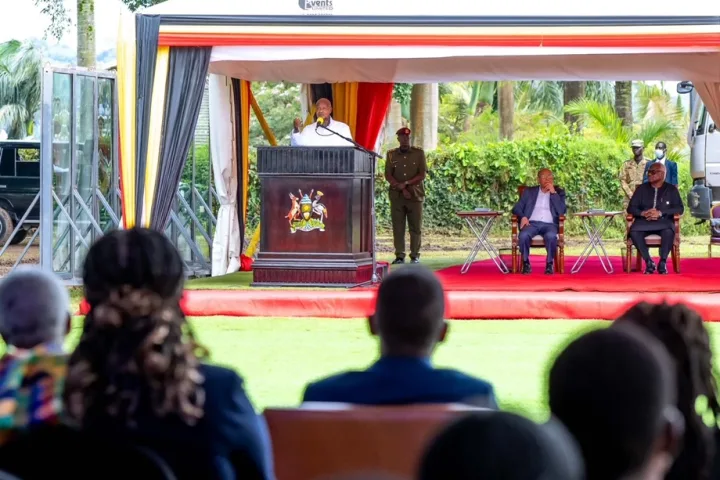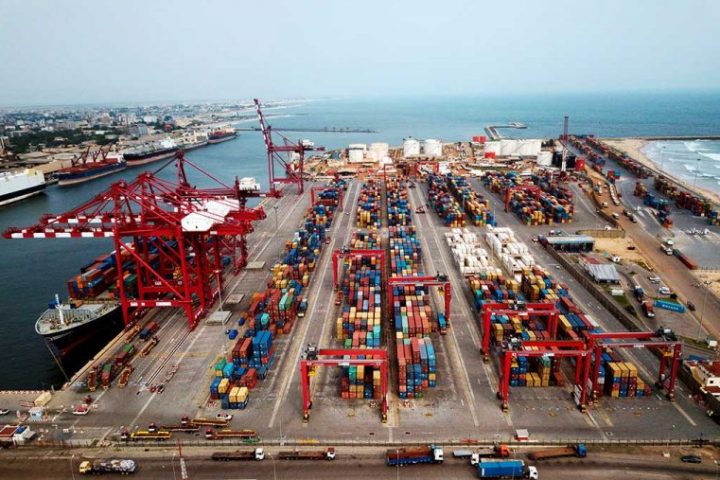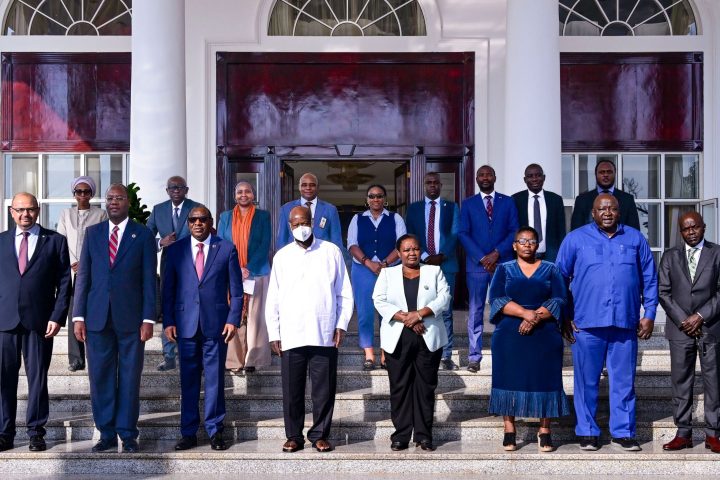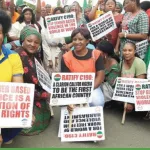The United Nations is currently running a campaign tagged: ’16 Days of Activism against Gender-Based Violence’. It’s meant to raise awareness and implement strategies to combat gender-based violence across the globe. The ongoing annual 16 Days of Activism Against Gender-based Violence awareness, which runs from 25th of November to 10th of December, is a reminder that gender-based violence is not just cruel and traumatizing for women and girls but also damaging to societies and economies. This year’s theme, “Invest to prevent violence against women and girls”, spotlights the economic cost of gender-based violence and the significant benefits of investing to address it.
The UN is concerned about the grave worldwide statistics that points to the fact that over 70 per cent of women experience violence in their lifetime. In Sub-Saharan Africa (SSA), a disturbing 33 per cent of women report having endured violence from intimate partners at some point in their lifetime. Less than 40 per cent of the victims seek help of any kind as they prefer to suffer and, in extreme cases, die in silence. This dire situation significantly worsened during the COVID-19 lockdown.
Join our WhatsApp ChannelAccording to the East African Community, there was almost a 48 per cent increase in violence against women (VAW) cases reported to the police or through toll-free lines. The Central African Republic reported increased injuries to women and children by 69 per cent and a 27 per cent increase in rape. GBV increased by 50 per cent in Liberia during the first half of 2020. In Kenya, cases of rape and defilement also increased: more than 35 per cent of all reported cases were related to these offenses. In Nigeria, the percentage of reported cases increased by 149 per cent, a figure that only includes 23 out of 36 states. Data on the GBV National Dashboard has it that Nigeria recorded 27,698 sexual and gender-based violence cases between 2020 and 2023.
South Africa has one of the highest incidents of GBV in the world with about 20 and 30 per cent of women suffering gender-based violence within a certain year. The South African police recorded a 37 per cent increase in GBV cases within the first week of the pandemic lockdown in April 2020. Beyond affecting homes and personal lives, GBV has broader implications for the continent’s economic health given the International Monetary Fund’s (IMF) estimates that for every 1 per cent increase in the number of women subjected to gender-based violence, also referred to as violence against women, national economic activities are reduced by up to 8 per cent. The menace has cost South Africa between 0.9 per cent and 1.3 per cent of its annual GDP. This translates to between R28.4 billion and R42.4 billion per year.
African women are incredibly resourceful and entrepreneurial but these attributes are increasingly threatened by gender-based violence which doesn’t tolerate partnerships that are essential for entrepreneurship ventures. A study recently conducted by TechnoServe Nigeria and the Ford Foundation found that empowering women economically and helping them generate incomes and pull themselves out of poverty goes a long way in reducing women’s exposure to gender violence. “Yes, we found that the nexus between women’s economic empowerment and gender-based violence (GBV) is complex and contextual in nature,” said the leader of the research team, Dr. Daniel Abah, whose team interviewed over 1000 women in Nigeria, Ghana and Senegal.
With 26 per cent of all women in sub-Saharan Africa being in the process of starting or managing a business according to the Global Entrepreneurship Monitor, VAW must not be allowed to abort these businesses even before taking off. Survey has shown that empowering women economically, and helping them to generate incomes and to pull themselves out of poverty greatly reduce their exposure to gender violence. Indeed, helping women access finance and become more economically independent avails them of an invaluable escape route. Unfortunately, their success in business is limited by the $42bn financing gap between men and women in Africa. This would not have been the case if financial institutions in the continent refrained from perceiving women as high-risk borrowers when it comes to giving out loan facilities.
Apart from affecting those in business, survivors of GBV suffer physical and emotional hurt that hinders their ability to contribute meaningfully to other aspects of the economy. This is in addition to the detrimental effect on workforce productivity which violence against women poses. The prevalence of GBV in Africa often forces victims to withdraw from the labor market, either temporarily or permanently. This not only shuts them out of entrepreneurship but also deprives African countries of the skills and talents of a significant portion of their population. This is as the economic fallout of VAW extends to the workplace, as survivors may experience reduced productivity, increased absenteeism, and a higher likelihood of leaving the workforce.
It is however worthy of note that women not only suffer domestic violence but also in the workspace. This happens in the form of customer and client aggression toward employees; workplace bullying and sexual harassment among employees or with others connected to the firm; sexual exploitation and abuse perpetrated by customers, clients, and community members toward female employees. Such gender-based violence can trigger some phobia and withdrawal syndrome that would discourage women from seeking paid employment altogether. This stands in the way of the development of a diverse and skilled labor force and limits prospects for economic growth and innovation.
All of this goes to show that combating gender-based violence in Africa isn’t just the right thing to do, but has become an economic necessity. The more Africans invest in their women the more the continent will be the better for it. By fostering an environment where all individuals, regardless of gender, can contribute effectively, African economies stand to gain from the untapped potentials being suppressed by the prevalent gender-based violence. Prime Business Africa therefore calls on African leaders to concentrate on economic empowerment for women to end GBV in the continent. We expect them to strengthen legal frameworks that protect victims and punish perpetrators of violence against women.
Civil society organizations in Africa must also rise to the occasion by raising awareness of national laws and advocating legislation that would protect women from acts of aggression and prevent violence. They can equally take up advocacy for the involvement of women in the decision-making process at home while promoting workplace policies and codes of conduct that would make female employees less susceptible to abuse. There is no better time for all to embrace this advocacy than now that the annual 16 Days of Activism Against Gender-based Violence awareness is ongoing.
Prime Business Africa believes that African nations can unlock the full potential of their populations and build more inclusive and prosperous economies if only they commit to addressing the root causes of gender-based violence while creating an environment that empowers and protects all individuals. Doing so will spell an end to low productivity, improve human capital development, and minimize pressure on healthcare systems while evolving the social cohesion needed for economic growth.

![Gender Activism An Economic Necessity In Africa [PBA Editorial]](https://www.primebusiness.africa/wp-content/uploads/2023/11/vaw.png)

















Follow Us